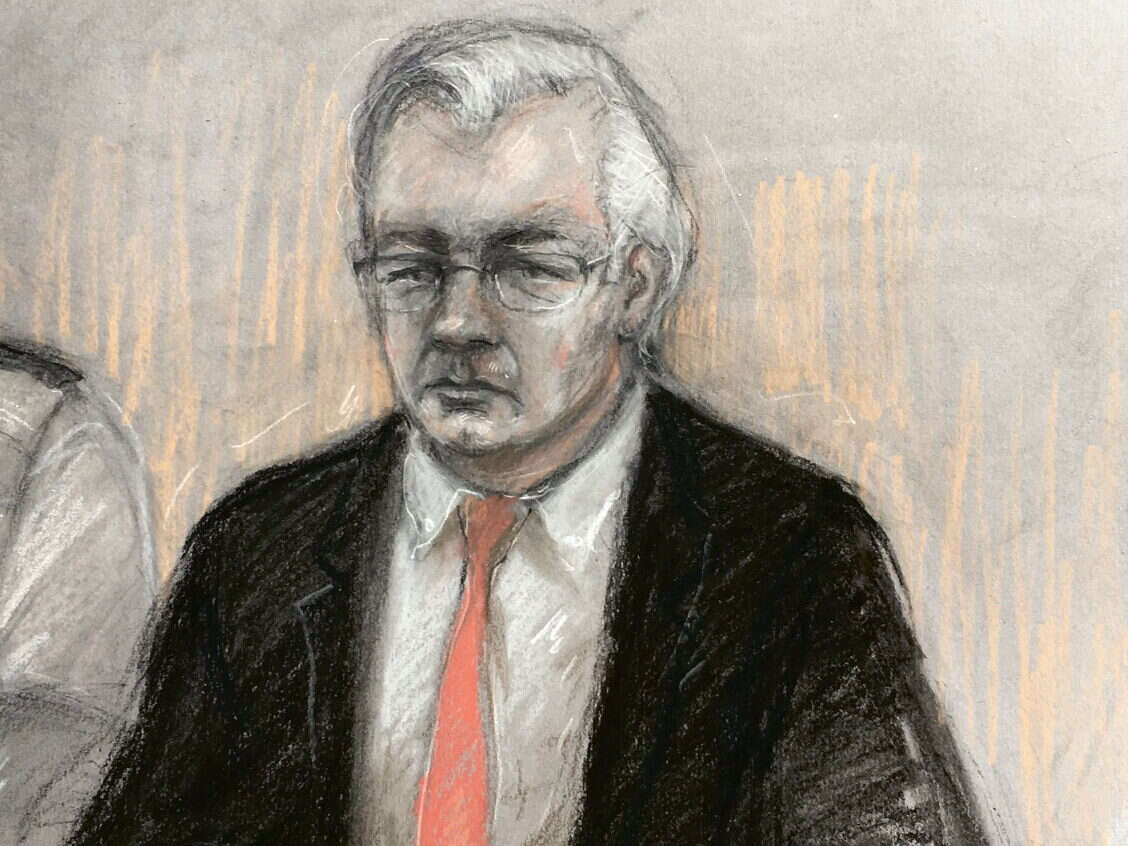
President Donald Trump wants to jail Wikileaks founder Julian Assange and “keep him quiet”, a court has heard.
US lawyer Eric Lewis claimed rumours Trump had been aided by foreign powers in the 2016 election continued to be viewed by the American leader as “undermining his legitimacy”, according to his witness statement presented to Assange’s extradition hearing.
Lewis asserted: “Wikileaks and Mr Assange pose a threat to the legitimacy of Trump’s [election] campaign that he is desperate to squash by diverting attention and imprisoning Mr Assange.
“Wikileaks is a vulnerability for Trump because of the evidentiary links between his campaign and Wikileaks.”
In October 2016, Wikileaks published Democratic National Committee emails to the “undoubted benefit of Trump”, according to Lewis.
Trump had regularly praised Wikileaks during his campaign, remarking: “I love Wikileaks,” the court heard.
But by 2019, he claimed to know nothing about the organisation, only that “there is something having to do with Julian Assange”, it was alleged.
In his statement, Lewis said: “The prosecution of Julian Assange is part of Trump’s efforts to distract attention from the help that Wikileaks gave to focus attention on the earlier leaks, which are much more politically potent for him.
“He wants to put Mr Assange in jail and keep him quiet.”
Under cross-examination at the Old Bailey on Tuesday, Lewis was challenged on his statement about Trump.
A lawyer for the US Government asked: “Are you saying that this is a politically motivated prosecution of someone who helped Mr Trump get elected in 2016?”
The witness replied: “I’m saying it was a politically motivated prosecution.”
Lewis said that at one point in 2010, Trump had called for the death penalty, before changing his view and then later changing it again to be more negative towards Assange and Wikileaks.
On his claim Trump wanted to silence Assange and put him in jail, the US prosecutor said: “Surely a public trial has the complete opposite effect?
“I’m putting to you it’s just conjecture.”
Lewis, who gave evidence by video link, replied: “It’s an informed assumption putting together the facts and comments from numerous sources.”
Assange is fighting extradition to the US following the leaks of hundreds of thousands of classified documents in 2010 and 2011.
The 49-year-old, who has been in high-security Belmarsh Prison for 16 months, is facing 18 charges including plotting to hack computers and conspiring to obtain and disclose national defence information.
Earlier, Lewis was also challenged on his claim that Assange faces 175 years in jail if convicted in the US.
James Lewis QC, for US government, said: “The 175 years you are saying is simply a soundbite on behalf of the defence.
“You don’t really expect him to be sentenced to that?”
The witness replied that there was a reasonable “likelihood”.
The next witness, Tom Durkin, a former assistant district attorney, told of problems in preparing a defence in cases like Assange’s dealing with classified documents.
Durkin, who has 47 years’ experience in US law, said: “It’s an incredibly difficult handicap to deal with.”
On whether Assange could face a sentence amounting to the rest of his life, he said: “I think that’s a very likely possibility.”
Based on his experience, the lawyer said a realistic sentence could be between 30 and 40 years in jail if Assange was convicted.
He added that other allegations not included in the charges could be taken into account on sentence.
Durkin added: “The court has other discretion in determining what information it will hear and rely on – and that works both ways.”
The witness said: “What I said in my affidavit, I said it was more likely than not that there were political considerations that influenced the decision to charge him at the time he was first charged by the Trump administration.”
He agreed with the suggestion by defence lawyer Edward Fitzgerald QC that the “quantum leap” in new charges against Assange could also have been similarly influenced.
Cross examining, a lawyer for the US government asked: “Are you saying he [Assange] will not get a fair trial in the US or are you just saying it’s going to be difficult.”
Durkin replied: “I do not believe he will be able to get what I would consider to be a fair trial.”
The extradition case at the Old Bailey is expected to go on for four weeks.
Picture: PA Wire/Elizabeth Cook
Email pged@pressgazette.co.uk to point out mistakes, provide story tips or send in a letter for publication on our "Letters Page" blog
